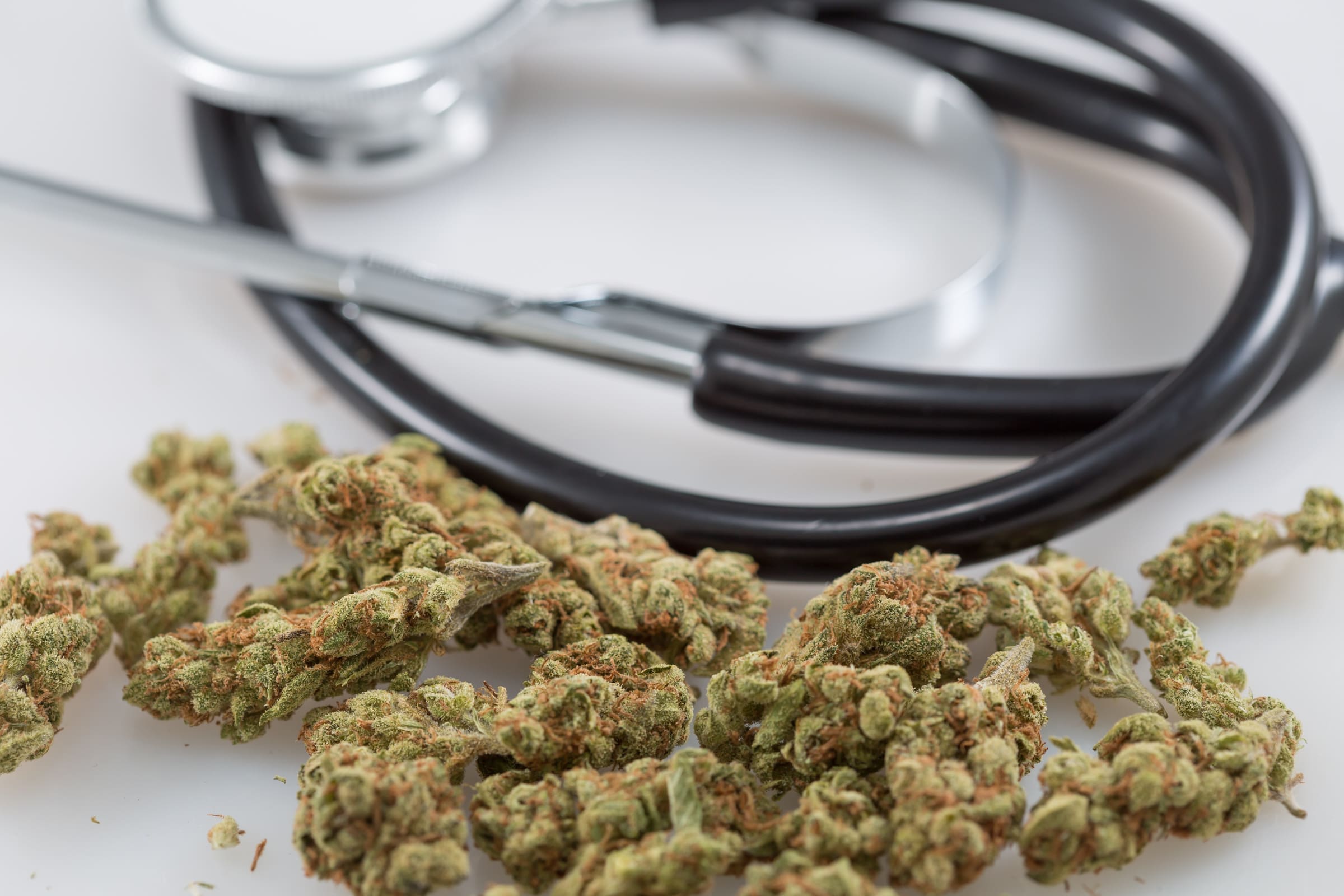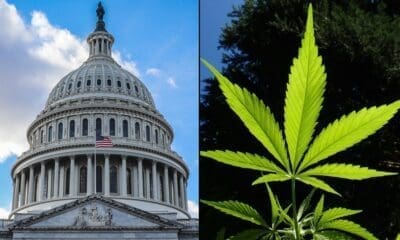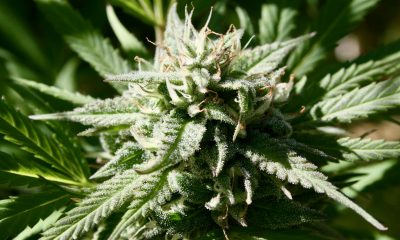Science & Health
Sports Medicine Doctors Have ‘Favorable’ Attitudes Toward CBD And Marijuana, Study Finds

Sports medicine providers “generally have favorable views toward CBD and cannabis,” and most believe marijuana should be removed from the World Anti-Doping Agency’s (WADA) list of prohibited substances, according to a new survey of 333 doctors published this month.
The study also found that most sports medicine physicians who participated support legalizing marijuana for recreational and medical use.
That said, there are still “varying views” about cannabis within the field, authors found, and those “appear to be significantly affected by age, practice type, and gender.”
Among demographic groups less likely to favor allowing marijuana for recreational use were women, older doctors and rural respondents, according to the survey, results of which appear in the journal Translational Sports Medicine.
“Similarly, these three factors were associated with a higher likelihood of disagreeing with WADA removing cannabis from the prohibited substance list and with the NCAA allowing CBD use by collegiate athletes,” it says.
Men and younger physicians, meanwhile, were less likely to identify marijuana as “performance-enhancing.”
WADA removed CBD from its prohibited substance list in 2018, but marijuana remains prohibited in competition by the international body as well as many other professional and international sports organizations.
The new study found that 72 percent of sports medicine physicians back the global athletics body’s move on cannabidiol and that 59 percent want it to go further by removing cannabis itself from the banned substances list.
An NCAA panel, meanwhile, recommended in September that the association’s divisional governing bodies remove marijuana from the list of banned substances list for college athletes.
A separate study published earlier this month found that states that legalized marijuana saw significantly better recruitment for college basketball, although they saw worse outcomes for football teams.
In terms of recommending CBD to patients, the new study found, pediatricians, rural doctors and academic physicians were less likely to advise use of the cannabinoid compared to other doctors in the field.
“Many sports medicine providers are recommending CBD and cannabis products,” the study concluded, noting that doctors chiefly recommend the products for chronic musculoskeletal and neuropathic pain. Yet it also claims to be “the first study to reveal that providers, albeit very few, are also recommending these products for sport-related concussions and sports performance anxiety.”
“This advancing cultural shift,” wrote the three-author team, “motivates ongoing research and education for sports medicine providers to better answer questions posed by athletes about the safety, dosing, and potential effects of CBD and cannabis in sports.”
Among study participants—physician members of the American Medical Society for Sports Medicine who responded to an emailed survey—more said they recommended CBD (40.8 percent) as opposed to marijuana (24.8 percent).
“The reasons are not entirely clear from this study,” authors wrote, “but given the overall safety profile of CBD, its lack of ‘intoxicating’ effects, and the general infiltration of CBD into mainstream consumer products, providers may see CBD as a safer option for patients compared to Cannabis and THC-containing products.”
Similar differences were observed in doctors’ views around the potential drawbacks of CBD versus THC in terms of physical performance—though authors attributed those differences more to to marketing and cultural shifts than to scientific findings.
“Only 9.9% of our respondents believe CBD is detrimental to performance and the integrity of sport, compared to 39% with cannabis,” the report says. “The reasons for this discrepancy are unclear from this study, but these perceptions may influence how sports medicine providers counsel their athletes using CBD products.”
“It is important to note that the ergogenic versus ergolytic effects of CBD compared to cannabis are still largely unknown,” the authors continued, “therefore, these perceptual differences can largely, if not exclusively, be attributed to marketing and advertising. In addition, one must recognize the seemingly ubiquitous addition of CBD to countless consumer products, which may also contribute to this evolving distinction.”
The study acknowledges that its relatively small sample comprised only about 7 percent of membership in the American Medical Society for Sports Medicine. And because it’s a survey from a single point in time, it can’t describe how opinions might be changing.
“Lastly, although the survey was anonymous, this is still considered a fringe topic by many in sports medicine and medicine in general,” it notes, “which may limit the divulgence of actual behaviors and attitudes of respondents.”
While WADA has decided to maintain its marijuana ban following a year-long review in 2022, an opinion piece from members of the association’s Prohibited List Expert Advisory Group in August pointed out that the international organization had made other cannabis reforms, including raising the amount of THC that can be present in an athlete’s urine to account for consumption outside of competitions, which is not prohibited under its rules.
“Because of these high thresholds, primarily chronic, frequent cannabis users and athletes consuming high doses in-competition will be detected. Therefore, the cut-off generally will not affect the freedom of an athlete who wishes to legally consume cannabis outside of competition,” the group said. “Athletes who have a need for medicinal cannabis should request a therapeutic use exemption.”
Advocates strongly urged WADA to enact a reform after U.S. runner Sha’Carri Richardson was suspended from participating in Olympics events due to a positive THC test in 2021.
Following that suspension, the U.S. Anti-Doping Agency (USADA) said that the international rules on marijuana “must change,” the White House and President Joe Biden himself signaled that it was time for new policies and congressional lawmakers amplified that message.
USADA previously expressed sympathy Richardson and indicated that it may be time for a reevaluation of the marijuana prohibition, but the group later followed up with a statement that went further by explicitly calling for a policy change.
The organization wrote that “President Joe Biden described the way forward best” when he said that “rules are rules” but nevertheless stated that the regulations may need to be reevaluated.
As more states have moved to legalize cannabis, sports organizations at multiple levels have worked to enact reform.
The National Basketball Association (NBA) and its players union recently signed a collective bargaining agreement that removes marijuana from the league’s banned substances list and lays out rules allowing players to invest in and promote cannabis brands—with certain exceptions.
Earlier this year, Nevada sports regulators voted to send a proposed regulatory amendment to the governor that would formally protect athletes from being penalized over using or possessing marijuana in compliance with state law.
UFC announced in 2021 that they would no longer be punishing fighters over positive marijuana tests.
The National Football League’s (NFL) drug testing policy changed demonstrably in 2020 as part of a collective bargaining agreement.
NFL and its players union also announced in June that they are jointly awarding another round of funding to support independent research on the therapeutic benefits of CBD as a pain treatment alternative to opioids for players with concussions.
The New York Media Softball League (NYMSL)—which has teams representing The Wall Street Journal, High Times and BuzzFeed among its ranks—announced in July that it was launching a sponsorship deal with a Kentucky-based CBD company.
The idea behind the collaboration was inspired by moves by Major League Baseball (MLB) and certain teams like the Kansas City Royals and Chicago Cubs that have also recently partnered with CBD businesses.
MLB itself announced its league-wide partnership with a popular CBD brand last year. Charlotte’s Web Holdings, one of the most recognizable hemp-derived CBD companies in the country, signed the deal with league to become the “Official CBD of MLB.”
















